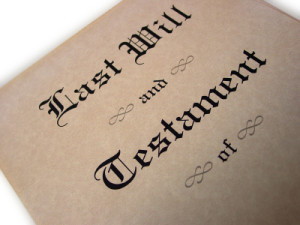 It’s often incredibly difficult to cope with the death of a loved one. A creditor knocking on your door makes it even more difficult.
It’s often incredibly difficult to cope with the death of a loved one. A creditor knocking on your door makes it even more difficult.
Can a creditor collect a credit card debt owed by your deceased parent or spouse?
There is not one simple answer to this important question. There are many factors to be considered. Here are 10 questions and answers to help you understand what may happen.
- Are family, friends or heirs responsible for your debts?
When you take out a credit card in your name, you’re agreeing to repay whatever you borrow. That obligation usually doesn’t extend to anyone else. The only exception is if you had a joint account holder. That person would be responsible for all debt incurred through use of that credit card, even if the debt was not run up by that joint account holder. - Direct creditors to the executor.
When you die, your obligations will transfer from you to your estate. The executor of your estate will be responsible for handling all of your estate’s financial issues, including your debts. If a family member gets a call about a debt and isn’t the executor, he or she should direct the caller to the executor and tell that person not to call again.
- Notify creditors and the credit bureaus.
The executor should notify any known creditors as soon as possible about the death. They should also notify the three main credit reporting agencies – Experian, Equifax and TransUnion – and request that the accounts should be flagged “Deceased: Do not issue credit”. This will help prevent a very common problem – identity theft of the deceased.
The executor should also request a copy of the deceased’s credit report. This will help him to identify any outstanding debts.
- Find out who’s responsible.
As previously mentioned, people who request credit together are equally responsible for the total debt. The same is true with a co-signer of a loan, who by cosigning is guaranteeing the debt of the borrower.Authorized signers on credit card accounts, however, aren’t liable. They didn’t originally apply for the credit; they were just allowed to ”piggyback” on the account of the person who did.
- Stop using credit card accounts.
If you’re an authorized user on a credit card account, you shouldn’t use the card after the main cardholder dies. Because you’re not liable for the debt, this could be considered fraud.A surviving spouse can request a card in his or her own name. However, it will most likely be a new card application, based on the survivor’s credit history, income, etc.
- Don’t split up all of the belongings yet.
Nothing should be distributed until after the estate has settled its debts. If there’s not enough money in the estate to pay those debts and belonging have been distributed, the heirs could become responsible for those debts.
- Ask creditors for help.
If a surviving spouse is a joint account holder and is having trouble paying the bills, he or she may be able to work something out with the creditors. He or she may be given time to get organized or to come up with the needed money.
- Community property states are different.
If you live in a community property state (Arizona, California, Idaho, Louisiana, Nevada, New Mexico, Texas, Washington, Wisconsin and, if you choose it, Alaska) one spouse can be liable for the debts of the other, even if they didn’t agree to them or even know about them. In these states, the surviving spouse will most likely be responsible for any credit card debts. - If an estate can’t pay, the lenders lose.
If the estate has more debts than assets to pay them, creditors may be forced to write off those debts. - When in doubt, contact an attorney.
Figuring out what to do about estate debts can be complicated so you might want to contact a probate attorney for help.For more information about identity theft of the deceased or how to settle an estate, check out our website, www.diesmart.com
.



